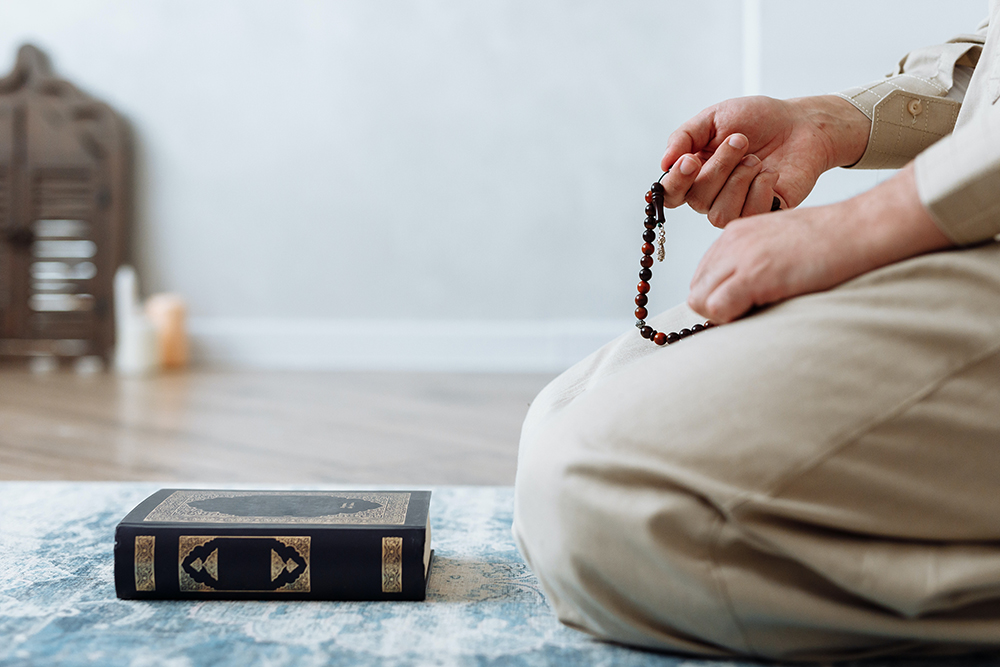Ramadan is a time of spiritual reflection and fasting observed by Muslims around the world, including those living in the UAE.
As a country hosting people from over 200 different nationalities, the UAE has a unique and diverse cultural landscape that welcomes people from all walks of life, regardless of race, region and religion.
During the Holy Month of Ramadan, non-Muslims in the UAE are expected to be respectful and mindful of the customs and traditions of their Muslim hosts.
Following these rules is not only a matter of courtesy and respect but is also an opportunity for non-Muslims to gain a deeper appreciation for the rich cultural heritage of the UAE and its people.
Ramadan rules and etiquette for non-Muslims
While non-Muslims are not required to fast during the month of Ramadan in UAE, it is important to be aware of certain rules and guidelines that are in place during this time.
To show respect for the customs and traditions of the UAE’s Muslim population, non-Muslims are prohibited from eating, drinking, or smoking in public during the hours of fasting, which also includes chewing gum.
Non-Muslims are expected to avoid engaging in any aggressive behavior, as well as refraining from dancing or playing loud music in public.
It is also important to dress appropriately and avoid any clothing that may be considered inappropriate. Swearing or using blasphemous language is considered extra offensive during Ramadan and should be avoided.
Non-Muslims should be gracious and accept invitations to join someone at Iftar, the evening meal that breaks the day-long fast.
Refusing a gift or invitation is considered impolite and may be seen as disrespectful.
Working hours during Ramadan in UAE
During Ramadan, working hours in the UAE are reduced by two hours, a practice that applies to both Muslim and non-Muslim workers. This means that non-Muslims are entitled to reduced working hours without a pay cut.
Parking timings
During the month of Ramadan, paid parking hours in the UAE are subject to change, and it is important for drivers to be aware of any adjustments in order to avoid potential fines.
Information about parking timings, fees, and modes of payment are typically displayed on parking meters located in the relevant areas.
In addition, it may be helpful to contact government transport entities in each emirate to obtain more detailed information about any changes in parking hours and fees during this period.
 By staying informed and following any guidelines related to paid parking during Ramadan, drivers can help ensure a safe and respectful environment for all residents and visitors during the holy month.
By staying informed and following any guidelines related to paid parking during Ramadan, drivers can help ensure a safe and respectful environment for all residents and visitors during the holy month.
The exact dates of Ramadan and Eid Al Fitr will be ascertained by the UAE moon-sighting committee.
Eid holidays
Based on astronomical charts, it has been determined that Eid Al Fitr in the UAE will commence on Thursday, April 20 and will continue until Sunday, April 23.
Public holidays in UAE
- New Year holiday: January 1
- Eid Al Fitr: From Ramadan 29 to Shawwal 3
- Arafah Day: Dhul Hijjah 9
- Eid Al Adha: Dhul Hijjah 10-12
- Hijri New Year: July 21
- Prophet Muhammad’s (PBUH) birthday: September 29
- UAE National Day: December 2-3
Spirit of Ramadan
Ramadan is the ninth month of the Islamic lunar calendar and is considered the holiest month in Islam. During Ramadan, Muslims in the UAE and around the world observe a month-long period of fasting and spiritual reflection, which is one of the five pillars of Islam.
Muslims who are physically able to fast, including abstaining from food, drink, and other physical needs, from dawn until sunset each day during Ramadan.
The fast is broken each evening at sunset with a meal known as Iftar, often shared with family and friends.
In addition to fasting, Muslims also increase their acts of worship during Ramadan, such as reading the Holy Quran, performing additional prayers, and giving to charity.
Many also take time for personal reflection and introspection, seeking to strengthen their relationship with God and develop greater self-discipline and empathy for those in need.
The end of Ramadan is marked by the celebration of Eid Al Fitr, a joyous holiday when Muslims gather with family and friends to pray, exchange gifts, and enjoy special meals.
tanvir@dubainewsweek.com
ALSO READ:

